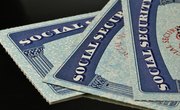Businesses or other organizations that owe you money may not always be able to find you. Perhaps an insurance company sent a check to your old address and never located your new one. That 10-year certificate of deposit may have matured long after you forgot about it and neglected to give the bank a forwarding address. Fortunately, unclaimed checks or other funds can often be located and your funds returned to you.
About Unclaimed Funds
When financial accounts go inactive, checks remain uncashed or are returned to sender or safe deposit boxes appear to be abandoned, the money (and other items) are regarded as unclaimed properties.
Every state in the U.S. has procedures for oversight of unclaimed funds within the jurisdiction of the state. In general, accounts that remain inactive for a fixed period such as three years may be regarded as unclaimed, especially if attempts to reach the account owner have been unsuccessful. These funds can include checks that have been sent to account holders but returned to the sender or otherwise uncashed.
Unclaimed funds are eventually turned over to the state government. The state controllers office, the secretary of state or some similar department maintains a database of all funds being held. Individuals and businesses can check with the state to determine if any funds are being held in their name.
Checking for Missing Money
The National Association of Unclaimed Property Administrators (NAUPA) maintains a database of unclaimed funds from many (but not all) state governments. Their database, MissingMoney.com, is maintained in cooperation with individual state governments. As of October 2020, 40 states were included in the NAUPA system.
You can search the database for any funds being held in your name, including returned checks, unclaimed accounts or property from safe deposit boxes. Searching is simple, generally requiring supplying only your last name, though you can include other information to narrow down search results. The search box asks you to identify a specific state of interest, but usually returns results from other states as well.
If your search at MissingMoney indicates you have unclaimed funds, the site also provides links that allow you to begin the claims process for recovering your property. This generally involves providing identifying information, such as your Social Security number.
Tips
Jurisdictions in other countries maintain unclaimed funds databases as well. Canadian provinces, for example, are included in the MissingMoney database, while U.K. unclaimed fund information is also searchable online.
Searching in Other States
MissingMoney does not include unclaimed data from all of the states. For example, as of October 2020, California is not part of the database. You can search for unclaimed funds in California separately, at the state's database.
Other states offer similar search functions, usually through the Office of the Controller or the Secretary of State. An internet search on the term "unclaimed funds," along with the name of the state, will quickly take you to the correct site for searching.
Accessing Federal Funds
The federal government maintains its own processes for managing unclaimed funds and returning them to the rightful owners. These funds can include Treasury checks, royalties from mineral rights, tax refunds and other federal sources.
There is no convenient centralized source for searching all U.S. government sources of unclaimed checks or other properties. However, the USA.gov Unclaimed Money page includes a helpful collection of links and search tips to get you started.
While you are searching for your own funds at federal and state sources, bear in mind that you can search for funds owed to your friends and relatives as well. Make sure to include maiden names, alternate first names and other name changes in your searches to cast the broadest possible net.
References
- MissingMoney: Homepage
- California: Unclaimed Property
- USA.gov: Unclaimed Money
- USA.gov. "Unclaimed Money from the Government." Accessed Feb. 1, 2020.
- Washington State. "Unclaimed Property: General Information." Accessed Feb. 1, 2020.
- U.S. Securities and Exchange Commission. "Escheatment Process: Accounts -- Abandoned and Unclaimed." Accessed Feb. 1, 2020.
- National Association of Unclaimed Property Administrators. "What is unclaimed property?" Accessed Feb. 1, 2020.
- Office of the New York State Comptroller. "Annual Report of the Office of Unclaimed Funds," Page 1. Accessed Feb. 1, 2020.
- The New York Times. "There Are Billions in Unclaimed Assets Out There. Some Could Be Yours." Accessed Feb. 20, 2020.
- New York State Comptroller. "Office of Unclaimed Funds Fact Sheet." Accessed Feb. 20, 2020.
- Texas Comptroller of Public Accounts. "Texas Comptroller Announces Record $308 Million in Unclaimed Property Returned in Fiscal 2019." Accessed Feb. 20, 2020.
- PressConnects. "Unclaimed Funds: Most less than $100, but one Connecticut resident got missing $32.8 million." Accessed Feb. 20, 2020.
- Internal Revenue Service. "Where's My Refund?" Accessed Feb. 20, 2020.
Warnings
- Avoid websites that charge fees to help you search for unclaimed money. They have no better access to this information than you have at free sites. Just follow the links provided in the reference section of this article and you'll be able to explore most of the federal and state agencies that may be holding unclaimed checks and other assets that belong to you. Happy treasure hunting!
Writer Bio
David Sarokin is a well-known Internet specialist with publications in a wide variety of business topics, from the best uses of information technology to the steps for incorporating your business. He is the author of The Corporation, Its History and Future (Cambridge Scholars, 2020) on the role of big business in the modern world, and Missed Information (MIT Press, 2016), detailing how our social systems like health care, finance and government can be improved with better quality information.
